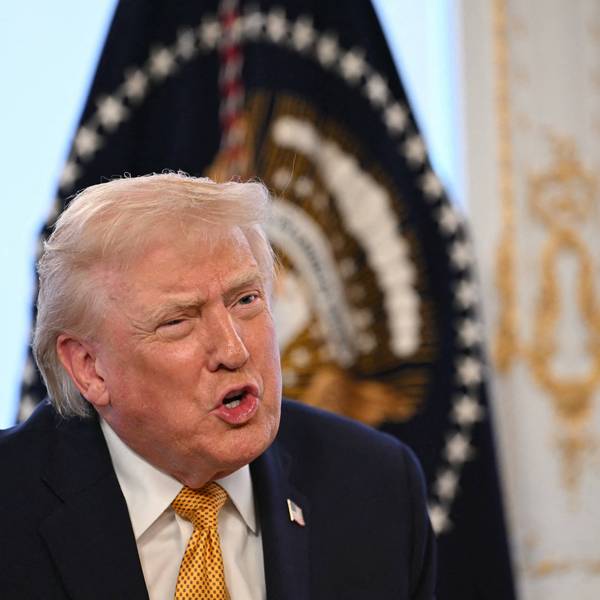A Republican elector has become the first of his party to join an unprecedented Electoral College revolt against President-elect Donald Trump, an effort led by eight Democratic electors that seeks to block the looming far-right administration from taking power in January.
The Democratic electors have sought to throw their support behind an alternative Republican candidate, in an effort to persuade Republican electors to join the anti-Trump revolt. The 538 electors cast their votes for president on December 19.
Christopher Suprun, an elector from Dallas, Texas, explained Tuesday in a New York Times op-ed why he refuses to vote for Trump. His perspective demonstrates that those on the right with fealty to the "party of Reagan," as Suprun puts it, may find common cause with progressives and Democrats when it comes to opposing Trump:
The United States was set up as a republic. Alexander Hamilton provided a blueprint for states' votes. Federalist 68 argued that an Electoral College should determine if candidates are qualified, not engaged in demagogy, and independent from foreign influence. Mr. Trump shows us again and again that he does not meet these standards. Given his own public statements, it isn't clear how the Electoral College can ignore these issues, and so it should reject him.
I have poured countless hours into serving the party of Lincoln and electing its candidates. I will pour many more into being more faithful to my party than some in its leadership. But I owe no debt to a party. I owe a debt to my children to leave them a nation they can trust.
[...] Hamilton also reminded us that a president cannot be a demagogue. Mr. Trump urged violence against protesters at his rallies during the campaign. He speaks of retribution against his critics. He has surrounded himself with advisers such as Stephen K. Bannon, who claims to be a Leninist and lauds villains and their thirst for power, including Darth Vader.
"Fifteen years ago, I swore an oath to defend my country and Constitution against all enemies, foreign and domestic," Suprun wrote. "On Dec. 19, I will do it again."
Politico reported Monday that Harvard law professor Lawrence Lessig is working with a California-based law firm to provide legal support for the electors planning to oppose Trump, which in some states violates the law.
"More significantly, Lessig said, the Trust will offer a platform--with guaranteed anonymity--for electors to strategize about stopping Trump from taking the White House," the outlet wrote. Lessig's effort launches Tuesday.
The group of "faithless electors"--the term for those electors who are refusing to vote for their party's nominee--has also attempted to garner support for their campaign from the Clinton camp, Politico reports. But Clinton's allies and Hillary Clinton herself have refrained from commenting publicly on the effort.
"Clinton's team and the Democratic National Committee have steadfastly refused to endorse the efforts spearheaded by a group of electors in Colorado and Washington state," writes Politico. "But, as with the ongoing recounts initiated by Green Party nominee Jill Stein, the Clinton team has not categorically rejected them, leaving the collection of mainly Democratic electors to push forward with no explicit public support from the failed Democratic nominee or any other prominent party leaders."
The faithless electors have also revealed the consensus pick for president, Politico says: Ohio Gov. John Kasich.
"Many Electors are saying that Gov. John Kasich would be best for our country. A consensus is beginning to form that Gov. Kasich would be best positioned to unite America," one of the Democratic electors leading the effort, Micheal Baca, told Politico in a statement Sunday. It is unclear, however, if Kasich would be receptive to the Electoral College effort.
The nine defections within the Electoral College comprise the most "faithless electors" in American history, Politico notes.



